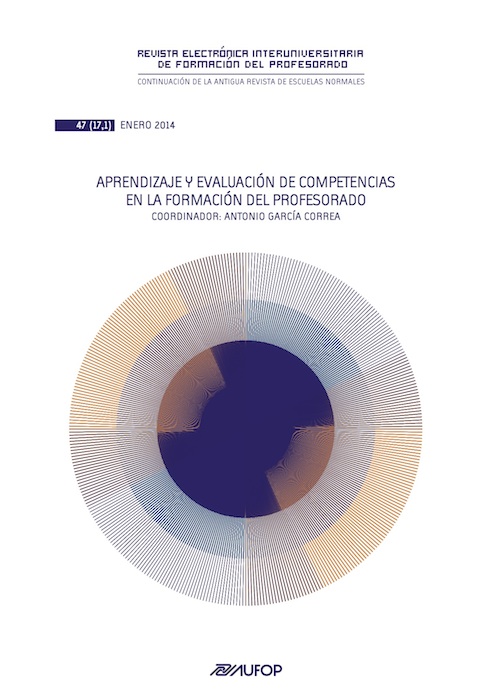Evaluation and accreditation of teachers, programs and educational institutions
Abstract
The implementation of the Bologna process aimed at developing the European Higher Education Area (EHEA) has involved substantial structural changes in Spanish universities, and also throughout the whole educational system in Spain. Along changes, tertiary education has set up a system which ensures a high level of quality, as well as a continuous improvement, by means of guidance, evaluation, certification and accreditation processes. This may be achieved through a quality assurance system that ensures the promotion and quality of institutions. In order to conduct the various evaluation, certification and accreditation processes, ANECA, a state foundation created in Spain in 2002, aims to "provide external quality assurance to the university system, and contribute to constant improvement" (ANECA, 2013). In order to carry out the various processes, ANECA launched a number of programmes which cover the whole spectrum, namely VERIFICA, MONITOR, ACREDITA and ACREDITA-Plus, and MENCIÓN, to assess teaching; AUDIT to assess institutions; and PEP and ACADEMIA to assess teaching staff. All these programmes are aimed at guaranteeing the quality of courses, of teachers, and of institutions.
Downloads
-
Abstract1838
-
PDF (Español (España))842
Los artículos que se publican en esta revista están sujetos a los siguientes términos:
1. El Departamento de Métodos de Investigación y Diagnóstico en Educación de la Universidad de Murcia (España), junto con el Servicio de Publicaciones de la Universitdad de Murcia (Editum) son los editores de la revista REIFOP y conserva los derechos patrimoniales (copyright) de los artículos publicados, permitiendo la reutilización de las mismos bajo la licencia de uso indicada en el punto 2.
2. Las obras se publican en la edición electrónica de la revista bajo una licencia Creative Commons Reconocimiento-NoComercial-SinObraDerivada 3.0 España (texto legal). Se pueden copiar, usar, difundir, transmitir y exponer públicamente, siempre que: i) se cite la autoría y la fuente original de su publicación (revista, editores y URL de la obra); ii) no se usen para fines comerciales; iii) se mencione la existencia y especificaciones de esta licencia de uso.
3. Condiciones de auto-archivo. Se permite y se anima a los autores a difundir electrónicamente las versiones pre-print (versión antes de ser evaluada) y/o post-print (versión evaluada y aceptada para su publicación) de sus obras antes de su publicación, ya que favorece su circulación y difusión más temprana y con ello un posible aumento en su citación y alcance entre la comunidad académica. Color RoMEO: verde.















